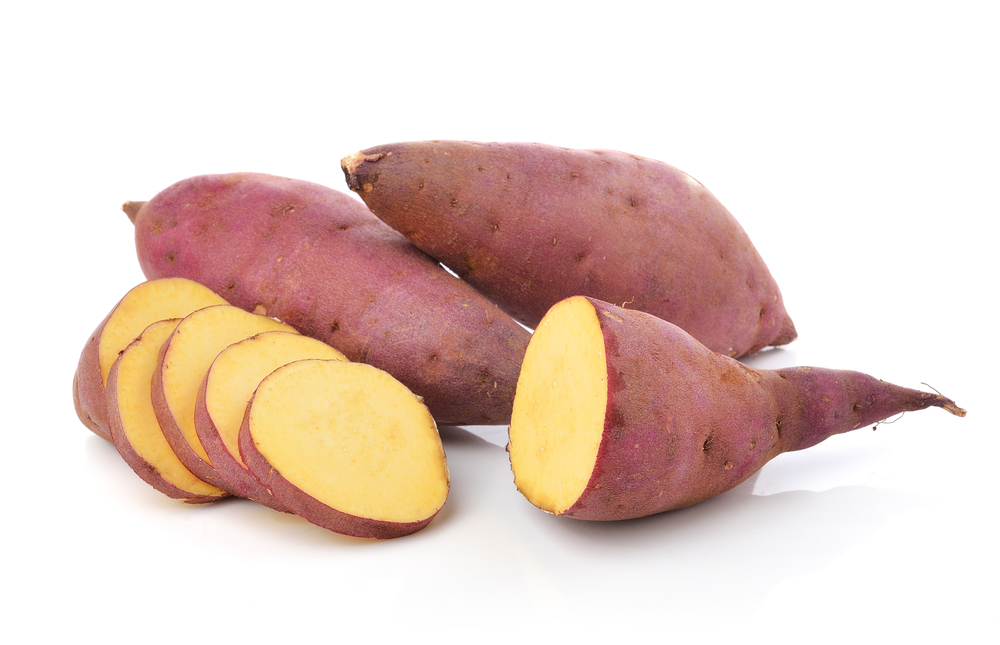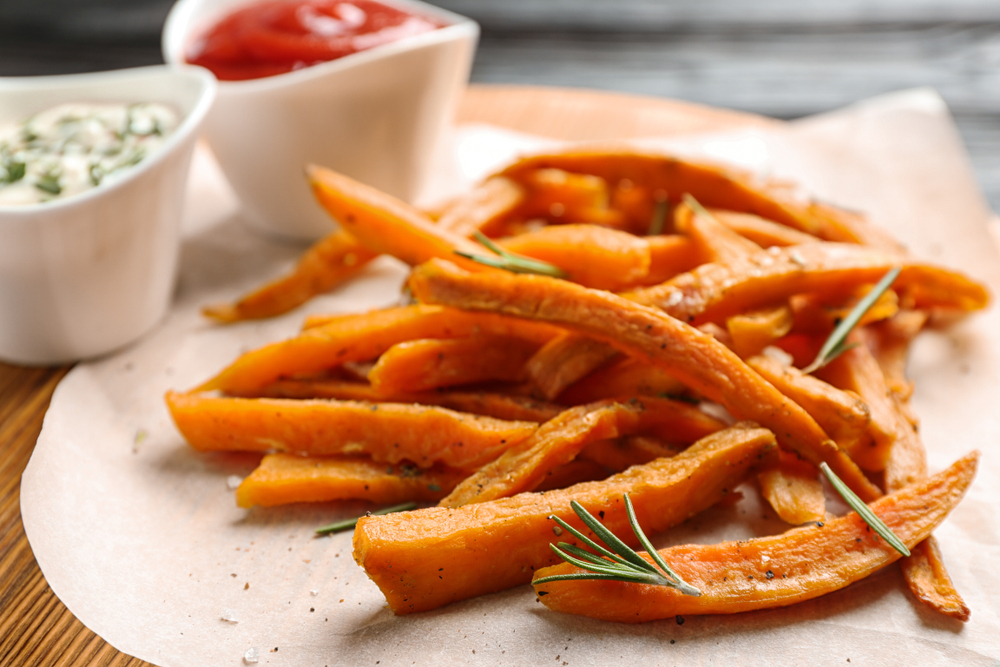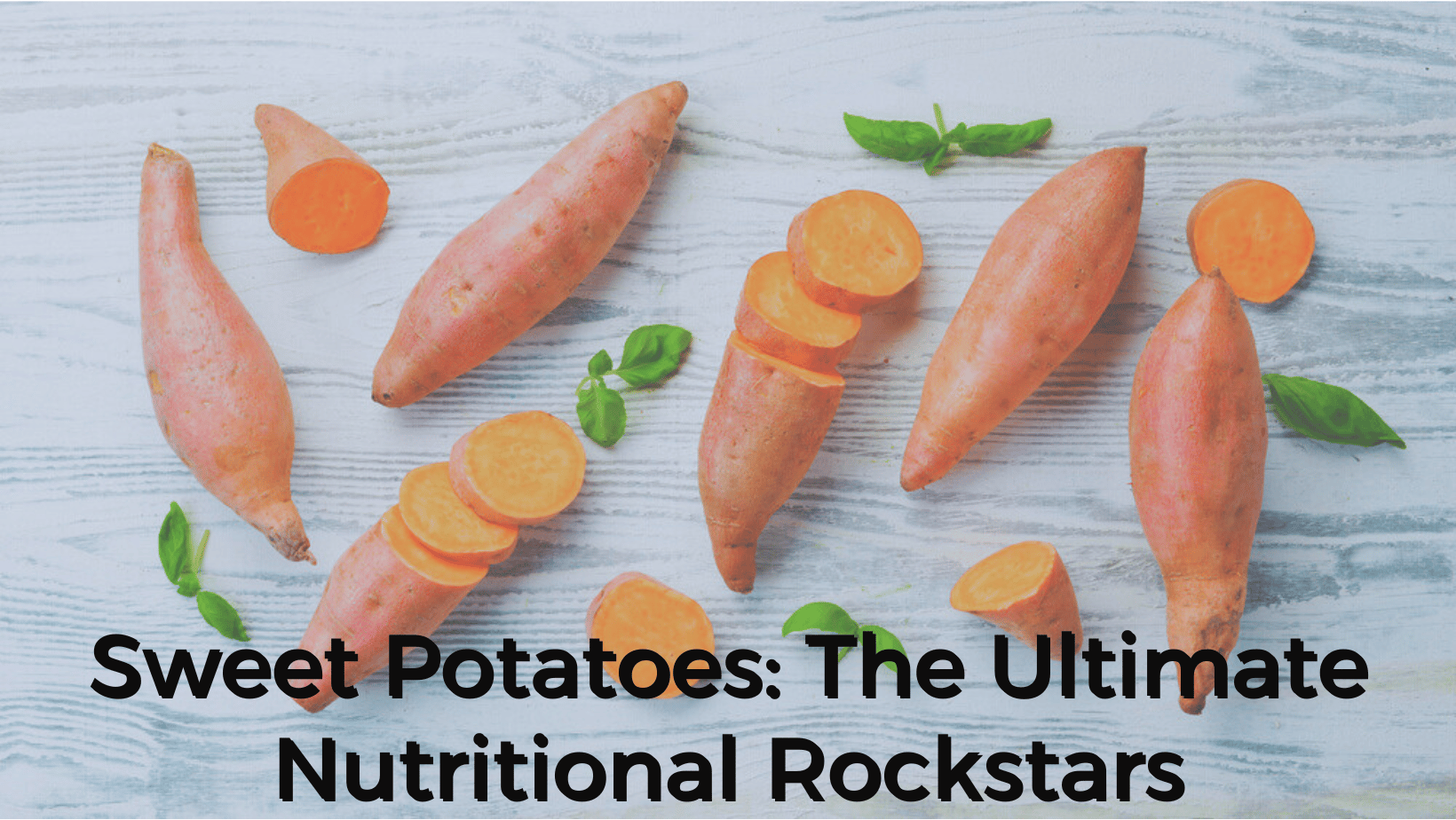Hey there, health enthusiasts! We're about to embark on a sweet journey into the fantastic world of sweet potatoes. These vibrant, naturally sweet, and all-around versatile tubers are the real deal when it comes to good eats and better health. So, grab your favorite snack and let's chat about sweet potato nutrition facts and the awesome sweet potato benefits.
Sweet Potato Nutrition Highlights
Let's break down the nutritional nitty-gritty for a 100-gram serving of sweet potatoes:
Calories
Weighing in at around 86 calories per 100 grams, sweet potatoes are a guilt-free delight that won't sabotage your daily calorie count.
Water Content
Sweet potatoes are about 77% water, making them a hydrating choice, especially when compared to calorie-dense snacks. Plus, that water content helps keep them tender and satisfying.
Protein
Sweet potatoes aren't protein powerhouses, with roughly 1.6 grams of protein per 100 grams. But remember, they're not the main source of protein; they shine in other areas.
Carbohydrates
Sweet potatoes are primarily a carbohydrate source, offering approximately 20.1 grams of carbs per 100 grams. These carbs provide a steady source of energy to fuel your activities.
Sugar
Naturally sweet, they contain around 4.2 grams of sugar per 100 grams. This is the kind of sugar your body loves, coming in a package complete with fiber, vitamins, and minerals.
Fiber
This is where sweet potatoes truly excel. With a whopping 3 grams of fiber in a 100-gram serving, they're your digestive system's best friend. Fiber keeps things moving smoothly and helps regulate blood sugar levels.
Fat
Sweet potatoes are impressively low in fat, offering just 0.2 grams of fat per 100 grams. The fat they do contain is the good kind – monounsaturated and polyunsaturated fats.
Sodium
The best part? They're naturally low in sodium, with only 55 milligrams per 100 grams. So, you can enjoy their flavor without overloading on salt.
Antioxidants
Sweet potatoes are armed with antioxidants, especially beta-carotene. These little warriors protect your body from oxidative stress, reducing the risk of chronic diseases. Plus, they’re the reason sweet potatoes rock that stunning orange hue.
Vitamins and Minerals
First up, vitamin A – the unsung hero for your eyes and skin health. Sweet potatoes are loaded with beta-carotene, a precursor that your body converts into this essential vitamin. But wait, there's more! Vitamin C is also in the mix, giving your immune system a high-five. Now, let's not forget the supporting cast – minerals like potassium, crucial for heart health, and manganese, a key player in bone formation. Sweet potatoes aren't just a tasty side dish; they're a nutrient-packed ally for your well-being. So, next time you're munching on those orange delights, know that your body is soaking up a vitamin and mineral bonanza!
Sweet Potatoes vs. Regular Potatoes
If you’ve ever been torn between sweet potatoes and regular potatoes, you’re not alone. Both are delicious, versatile, and loved by many. However, when it comes to their nutritional profiles, they have some key differences. Let’s break down the sweet potatoes vs. regular potatoes battle and see who comes out on top.
Regular Potatoes:
- White potatoes are slightly lower in calories and carbohydrates compared to sweet potatoes.
- They contain less fiber than sweet potatoes, particularly if you leave the skin on.
- While they do provide some vitamins and minerals, white potatoes are not as rich in nutrients as sweet potatoes. They are a good source of vitamin C, potassium, and vitamin B6.
- White potatoes generally have a higher glycemic index compared to sweet potatoes, meaning they may cause a quicker spike in blood sugar levels.
Sweet Potatoes:
- Sweet potato calories count is slightly higher and carbohydrates than white potatoes.
- They are a great source of fiber, which aids in digestion and helps regulate blood sugar levels.
- Sweet potatoes are rich in beta-carotene, a precursor to vitamin A, and also provide a good amount of vitamin C, manganese, and potassium. They are generally considered more nutrient-dense than white potatoes.
- Sweet potatoes have a lower glycemic index compared to white potatoes, making them a potentially better choice for those looking to manage blood sugar levels.

Sweet Potato Benefits
Sweet potatoes are not just a delicious addition to your plate; they also come with a plethora of health benefits. Here’s a rundown of sweet potato benefits packed into those vibrant orange spuds:
Heart Health Hero:
With their high fiber and potassium content, sweet potatoes help to keep your blood pressure in check. This makes them your heart’s best friend and reduces the risk of heart issues. Antioxidants join the party by keeping inflammation at bay.
Digestive Dynamo:
Sweet potatoes’ fiber isn’t just about making you feel full; it also helps maintain a smooth-sailing digestive system. No more rendezvous with Mr. Constipation.
Weight Whiz:
The fiber keeps you feeling full, making sweet potatoes a low-calorie champ. Perfect for anyone looking to manage their weight without compromising on flavor.
Immune Boosting Bonanza:
Packed with vitamin A and vitamin C, sweet potatoes give your immune system the boost it needs to fend off the nasties. Fewer sick days, more fun days!
Glowing Skin and Super Sight:
Sweet potatoes are like the Avengers of the veggie world, saving the day with beta-carotene that transforms into the almighty vitamin A. Sweet potatoes are your secret weapon for healthy skin and sharp eyes. Beyond this, the antioxidants, vitamins, and minerals team up to keep your eyes cataract-free and shield against macular degeneration.
Improved Blood Sugar Regulation:
With their low glycemic vibes, sweet potatoes are all about that steady energy flow, perfect for keeping diabetes in check. The fiber and complex carbs are the MVPs here, teaming up to regulate blood sugar levels and keep insulin sensitivity in check.
Reduced Oxidative Damage and Cancer Risk:
Sweet potatoes bring out the antioxidant squad – beta-carotene and other cool phytochemicals. They fight off oxidative stress, lowering your risk of chronic diseases, including certain types of cancer.
Delightful Ways to Dig In
Now that we’ve talked up sweet potatoes, it’s time to explore the fun ways to eat ‘em:
- Baked Beauties: Simply pop those sweet spuds in the oven until they’re tender. Top with Greek yogurt, cinnamon, and a drizzle of honey – a dessert-like side dish that's also good for you.
- Fancy Fries: Turn sweet potatoes into fries by slicing, seasoning, and baking them. They’re a healthier alternative to the classic French fries and every bit as tasty.

- Mash Madness: Boil sweet potatoes, mash ‘em up with some butter, salt, and fresh herbs. It’s like a flavor explosion in your mouth – the perfect side dish.
- Chili MVP: Toss diced sweet potatoes into your chili for a slightly sweet and hearty twist. It’s like a culinary adventure in a bowl.
Potential Downsides of Sweet Potatoes:
While sweet potatoes are healthy, there are some sweet potato side effects, especially if consumed in excess or in certain situations. Here are a few things to keep in mind:
Sweet potatoes are relatively high in carbohydrates. If you have diabetes or are monitoring your carb intake, be mindful of portion sizes to avoid spikes in blood sugar levels.
Sweet potatoes contain oxalates, compounds that can contribute to the formation of kidney stones in susceptible individuals. If you have a history of kidney stones, it's advisable to moderate your intake of oxalate-rich foods, including sweet potatoes.
While rare, some people may be allergic to sweet potatoes. The high fiber content of sweet potato benefits your digestion but may cause digestive discomfort in some individuals. This may happen particularly in people who are not accustomed to a high-fiber diet.
Conclusion
So there you have it, folks. Sweet potatoes are more than just a tasty side dish – sweet potato nutrition powerhouse packs a punch. Whether you’re looking to boost your immunity, improve your digestion, or just enjoy tasty, good-for-you eats, sweet potatoes are the answer. So next time you’re at our online grocery store - edobo, make sure to snag some of these tuber treasures. Your body and your taste buds will thank you! Buy sweet potato online from edobo.


0 Comment